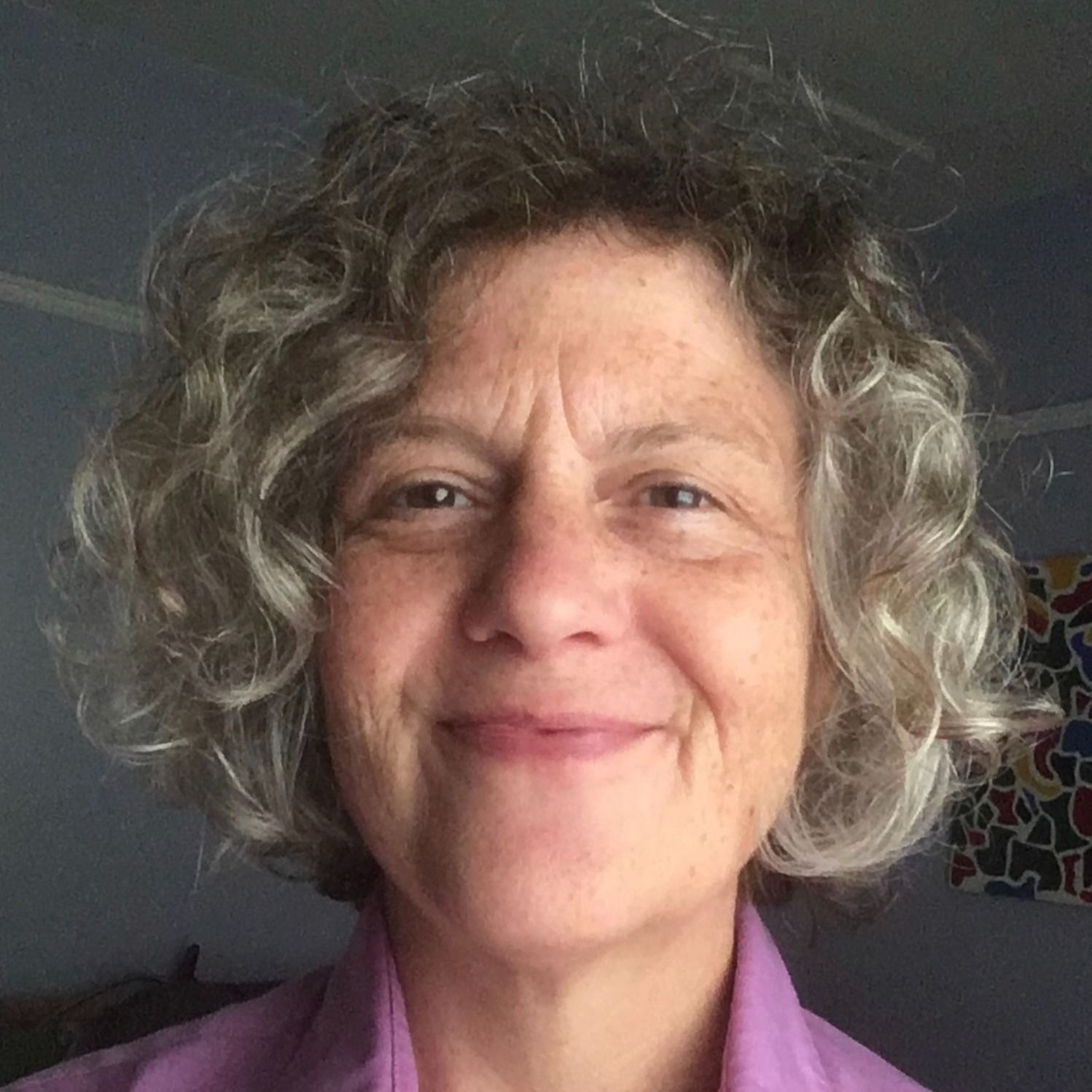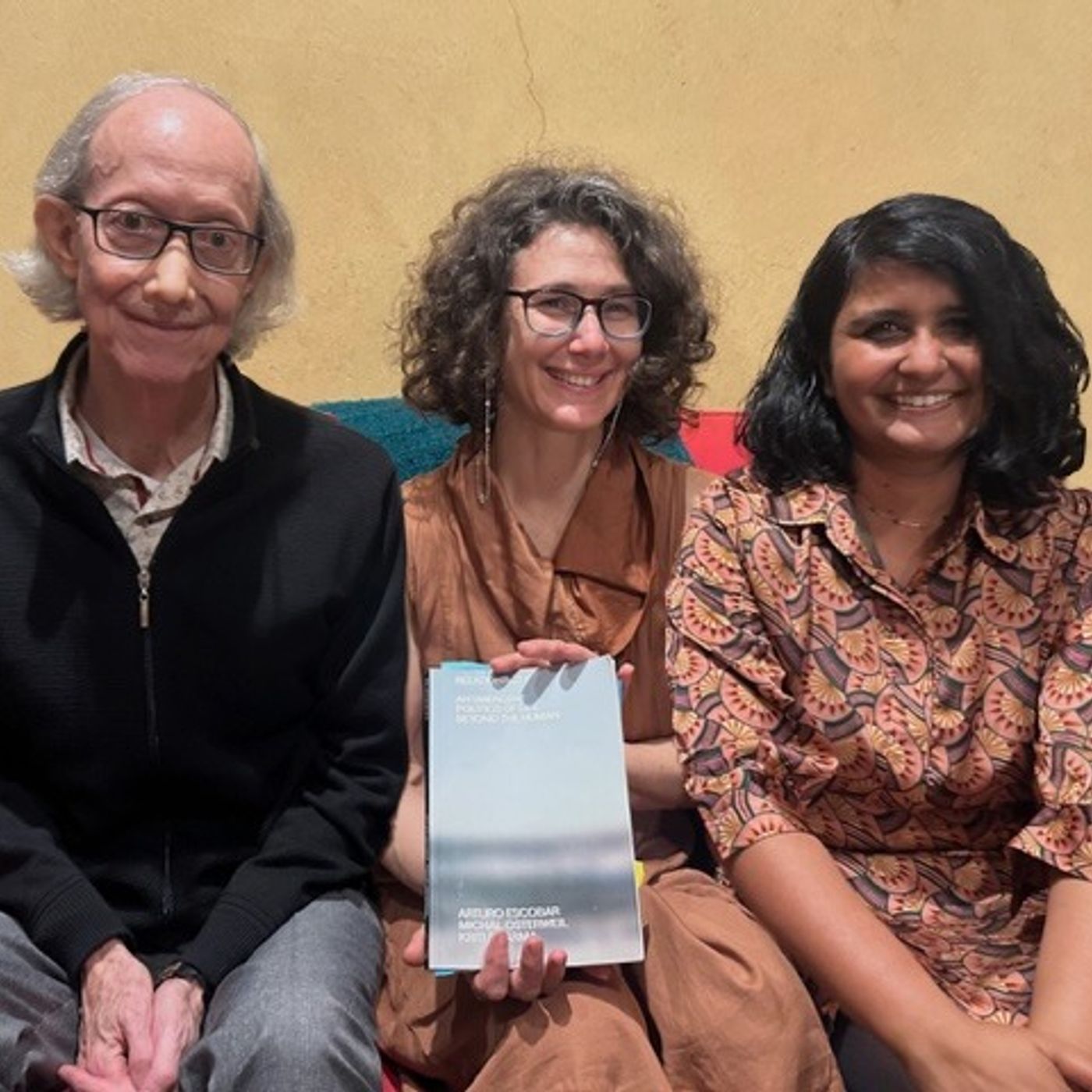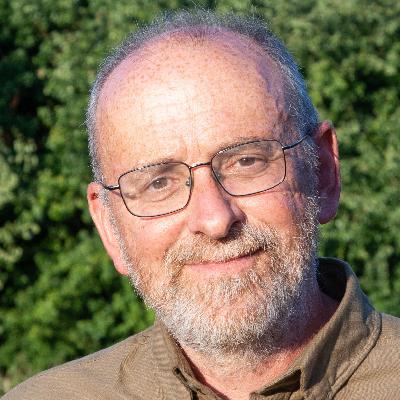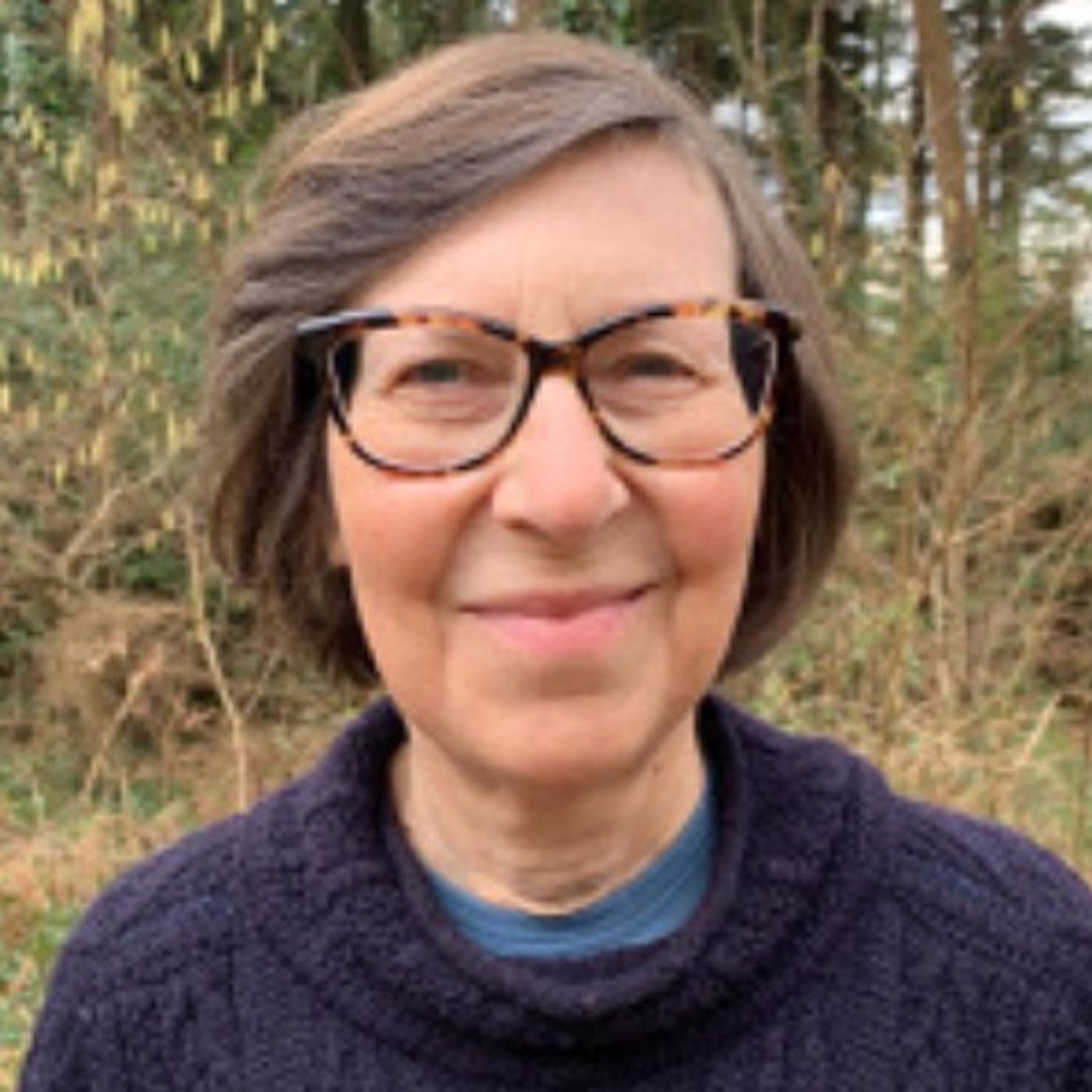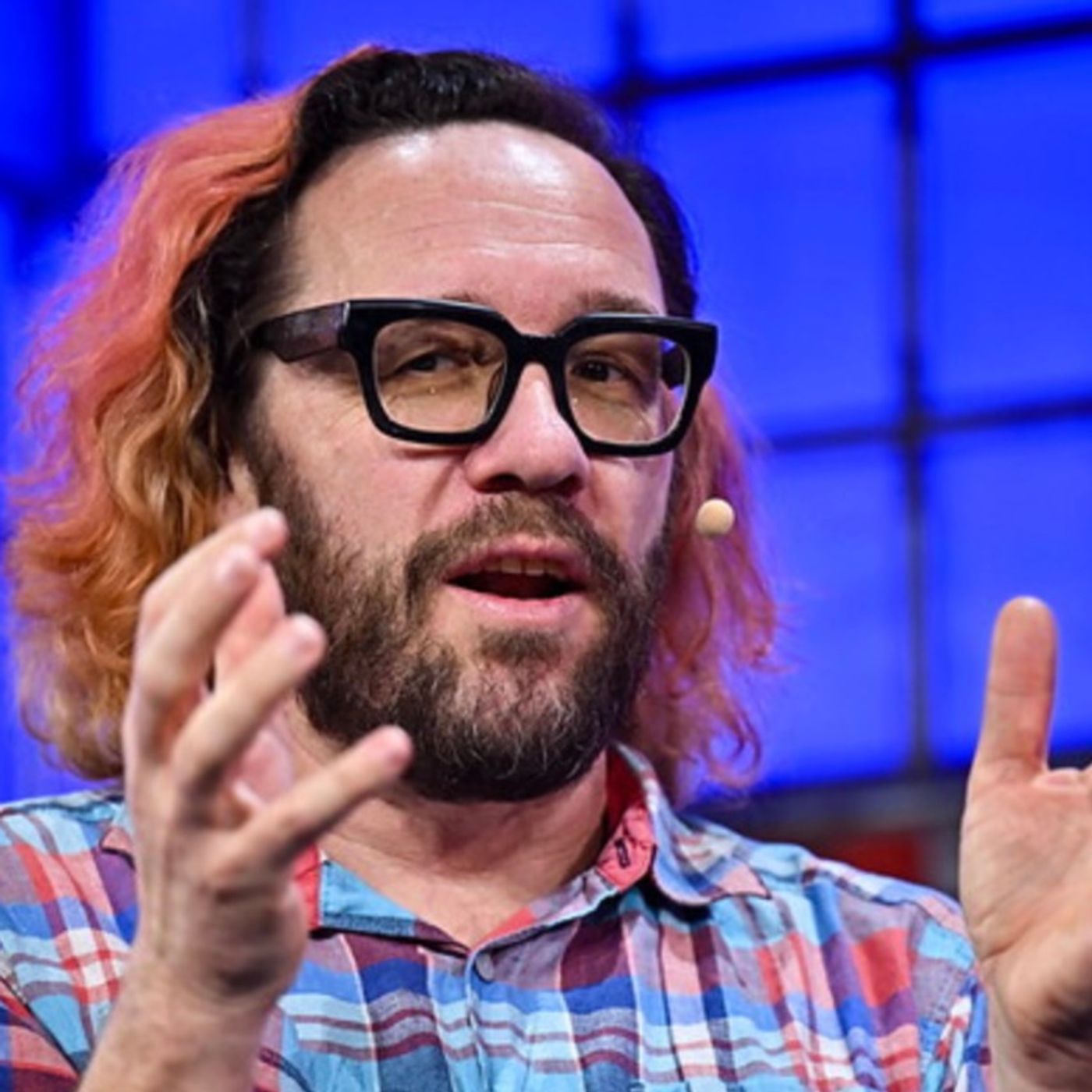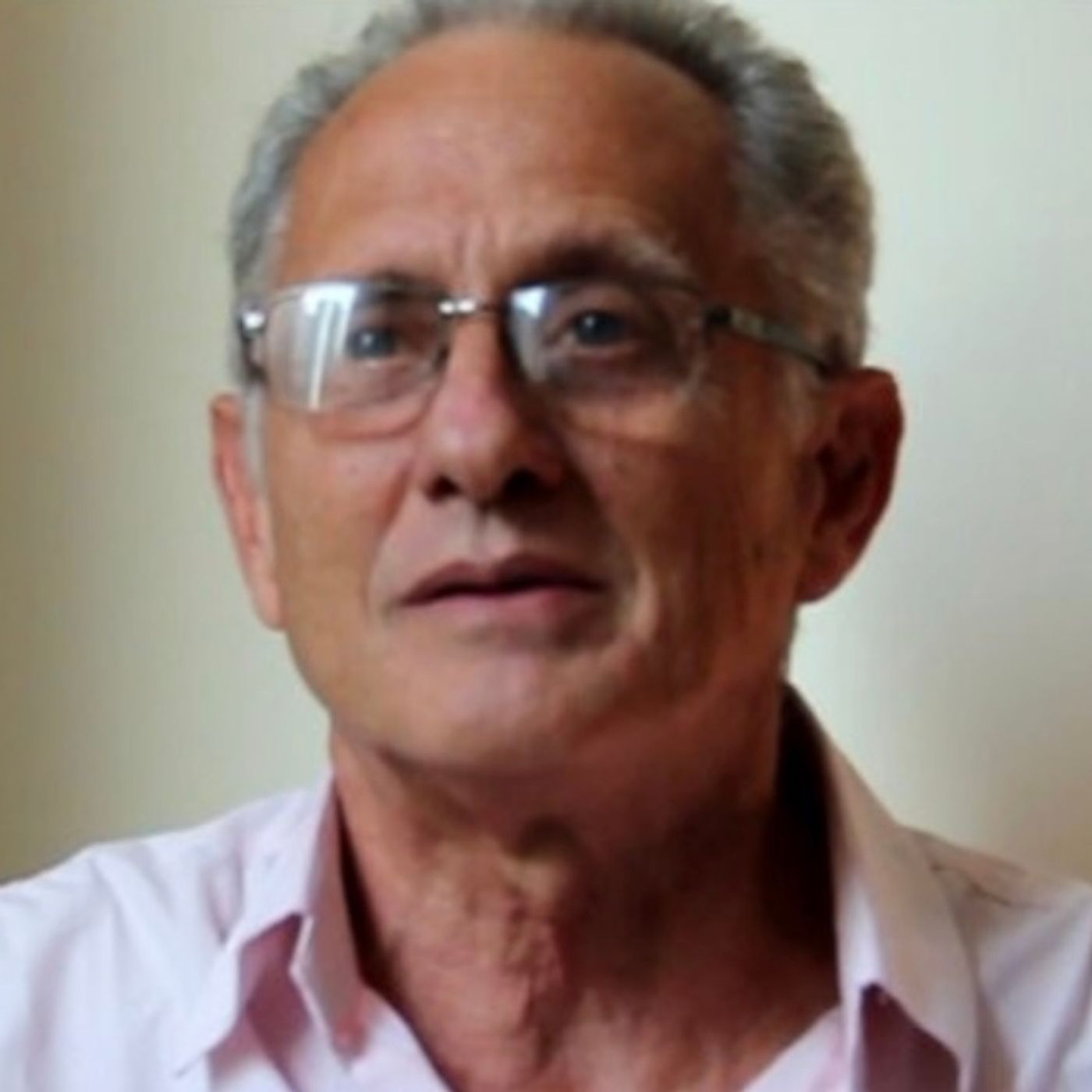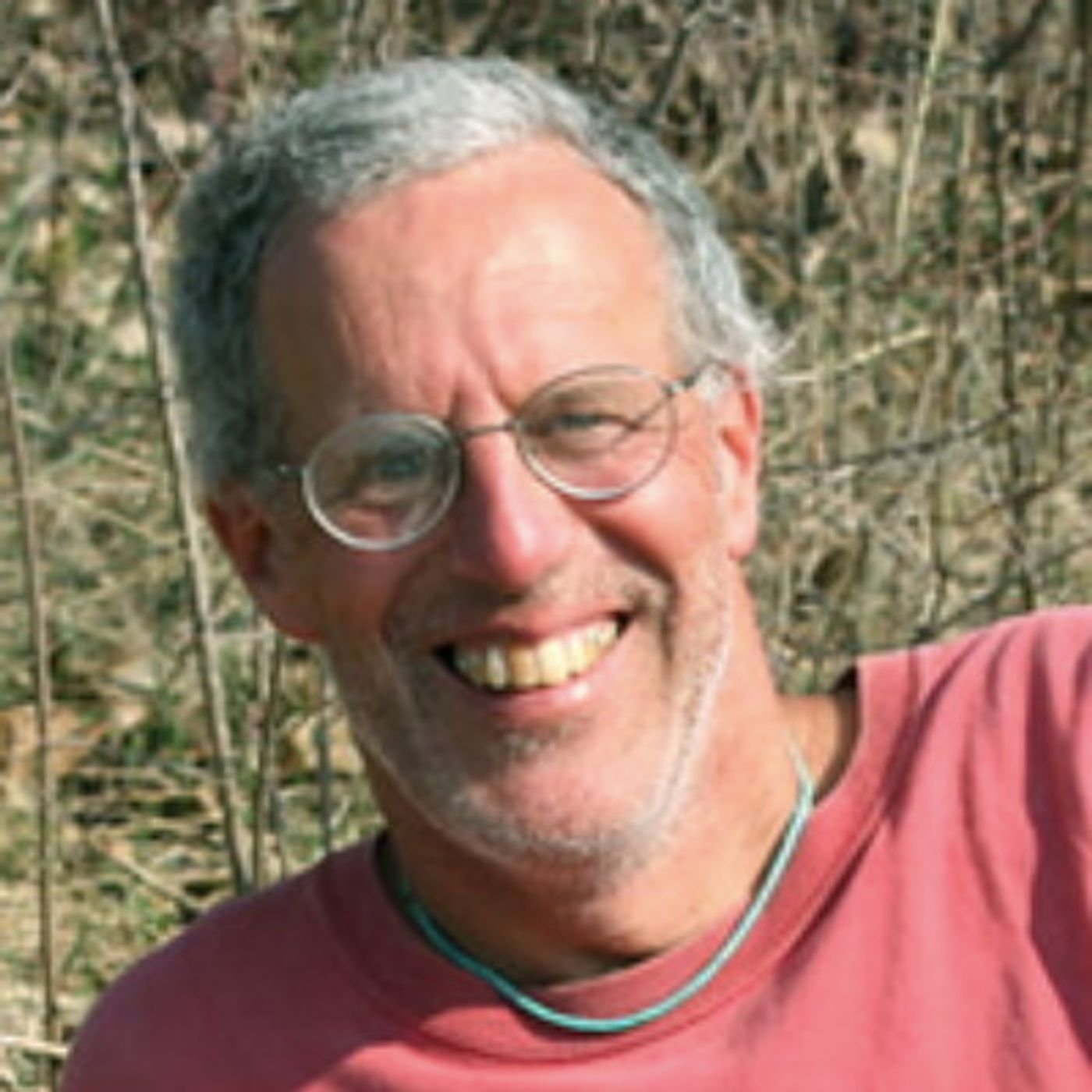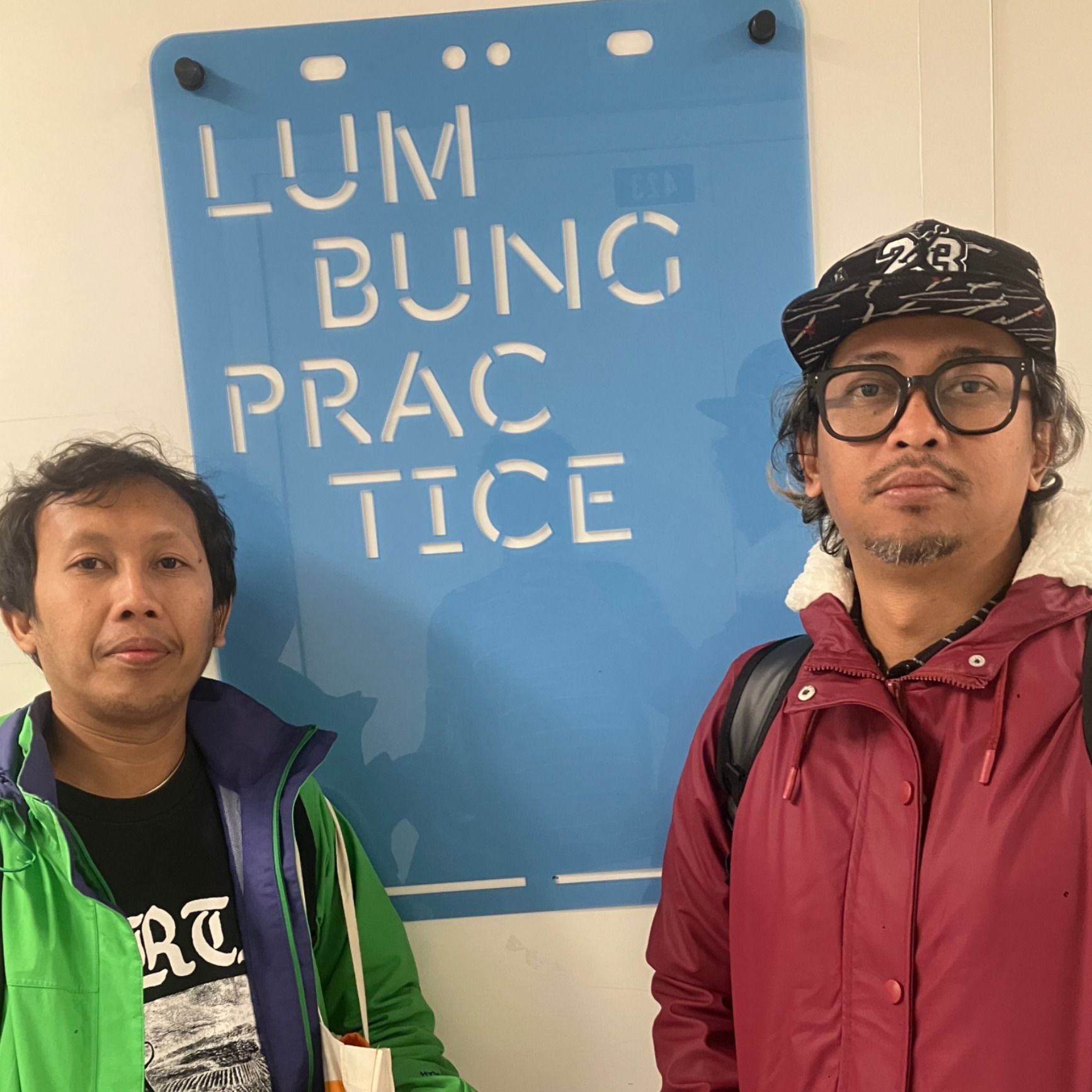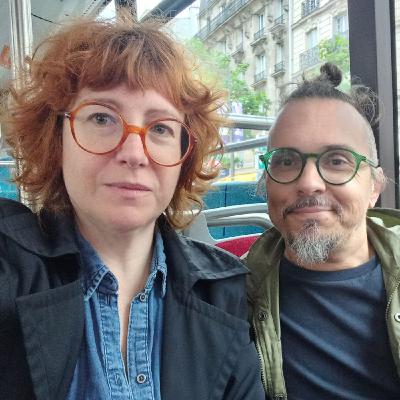Discover Frontiers of Commoning, with David Bollier
Frontiers of Commoning, with David Bollier

Frontiers of Commoning, with David Bollier
Author: The Schumacher Center for a New Economics, David Bollier
Subscribed: 91Played: 1,344Subscribe
Share
© 2020-2025. Licensed under Creative Commons 4.0 BY-SA license.
Description
A monthly conversation with creative activists pioneering new forms of commoning.
71 Episodes
Reverse
For the past five years, Stéphanie Leyronas has been part of an internal team at the French Development Agency (AFD) exploring how it might pioneer new forms of development by supporting commoning in Africa, Asia, and Latin America. Instead of promoting the linear "progress narrative" of capitalist markets and growth, AFD's efforts seek to strengthen social collaboration and shared benefits, drawing upon the distinctive strengths of each local context. The experiments are forging a Global North-assisted development approach rooted in traditional "relational logics" of cooperation, co-learning, and long-term eco-stewardship. For more on the commons, go to www.Bollier.org.
Lewis Hyde, a celebrated scholar, essayist, literary critic and poet, wrote two classic books on aspects of the commons -- 'The Gift,' in 1979, about the power of gift-exchange in forging and maintaining social reciprocity, and 'Common as Air,' in 2010, about creativity as a force nourished by cultural commons. In this episode, Hyde discusses the origins of his striking perspectives on creativity as a gift that must be shared ("the gift must always move"), and the ways in which the US Founding Fathers sought to protect the free circulation and sharing of knowledge rather thane excessive private control through copyrights and patents. More more on the commons, visit www.Bollier.org. Credit for photo of Hyde: Anna Schuleit Haber For more on the commons, go to www.Bollier.org.
As the capitalist economy grows more expensive and predatory, Stephanie Rearick and her colleagues are building an alternative social economy that meets people’s needs through care and cooperation. As founder of the Madison Mutual Aid Network Cooperative and Dane County Timebank in Wisconsin, Rearick is a leading champion of mutual aid projects as a force for building the "real wealth" of community. She also works internationally through Humans United in Mutual Aid Networks (HUMAN), a global network of networks dedicated to building the mutual aid economy. More on Mutual Aid Network at https://mutualaidnetwork.org/man. More on the commons at www.Bollier.org. For more on the commons, go to www.Bollier.org.
At a time when the superstructures of modern civilization seem terminally messed up, the authors of 'Relationality: An Emergent Politics of Life Beyond the Human' argue that we must start a new conversation about the nature of being and modern myths of the self. Anthropologist Arturo Escobar, cultural studies scholar Michal Osterweil, and biologist Kriti Sharma draw on a diversity of sources – evolutionary science, cultural studies, art and poetry, Indigenous practices, wisdom traditions, and more – to explain the deep interdependence of all living beings: a perspective can help us develop a new political economy and culture. More on the commons at www.Bollier.org. For more on the commons, go to www.Bollier.org.
What might the world look like if capitalist growth and carbon emissions continue, and modern civilization collapses? Chris Smaje, a small farmer and writer in England, extrapolates from existing trends to sketch a vision of post-capitalist social economies. His new book, 'Finding Lights in a Dark Age: Sharing Land, Work and Craft,' envisions a world that is largely rural, decentralized, and grounded in local ecosystems and self-reliance. The book is neither a doomer nor survivalist tract, but rather an intelligent, speculative inquiry into models of collective organization, bottom-up governance, and ethical belief that will shape "local livelihood communities." For more on the commons, go to www.Bollier.org.
As climate change and other crises makes the economy and everyday life more precarious, innovative forms of bioregional action are needed to respond to 'Gaia on the move," says Isabel Carlisle, founder and director of the Bioregional Learning Centre (BLC) in Devon, England. Carlisle describes the importance of building local ecological expertise, participation, and institutions to build community resilience in the years ahead, especially because centralized nation-states will not be able to do the job. The BLC is part of a growing worldwide interest in 'bioregioning' -- activism, projects, and philosophical shifts to build a new type of socio-ecological economy. More on the commons at www.Bollier.org. For more on the commons, go to www.Bollier.org.
Evan Henshaw-Plath, better known as Rabble, is a pioneering programmer for social media platforms and decentralized technologies. Here, Rabble explains how network protocols are critical infrastructure for enabling -- or impeding -- commons and open markets, not to mention privacy, free speech, and community control. Their ambition is a future in which everyone has "access to authentic, private online communities built on care, connection, and sustainable relationships.” [More on commons at www.Bollier.org.] For more on the commons, go to www.Bollier.org.
Gustavo Salas describes the remarkable culture of commoning at Cecosesola, a federation of 30 rural and urban cooperatives in Venezuela that serves hundreds of thousands of people with fresh produce, healthcare, funerary services, and many other goods and services. Cecosesola's priority is to create spaces of trust, togetherness, and self-improvement for its 1,300 associates while meeting the everyday needs of low-income families. Market prices and norms are secondary. For its work in escaping the transactional, capitalist-driven mindset and pioneering forms of provisioning that are fair, personally enriching, and much more affordable, Cecosesola won the Right Livelihood Award in 2022. For more on the commons, go to www.Bollier.org.
Jack Kloppenburg has been a leading figure in the fight to protect seed-sharing commons over the past forty years. It's a struggle that began in the 1980s as large ag-biotech companies have sought to make seeds privately owned and proprietary using all sorts of legal, technological, and market restrictions. Kloppenburg has been a professor at the University of Wisconsin, Madison since 1985 and a founder of the Open Source Seed Initiative. OSSI leads a movement of farmers, breeders, gardeners, and small seed companies dedicated to building a culture of openly shareable seeds and breeding innovation.
For more on the commons, go to www.Bollier.org.
Tom Llewellyn, Executive Director of Shareable, describes the countless varieties of organized sharing that it supports through its journalism, organizing, and partnerships. In recent years, Shareable has helped amplify the work of mutual aid networks, expand the Libraries of Things concept, championed new forms of urban commoning, and develop new infrastructures of sharing. Its work on creative, bottom-up collaborations also showcases dozens of vanguard ideas, such as peer-to-peer lending, DIY bike lanes in cities, emergency battery networks for neighborhoods, and "Permablitz" conversions of suburban backyards into micro-farms for vegetables. For more on the commons, go to www.Bollier.org.
What are some of the distinctive ways that precarious arts collectives share resources, support each other, and make art? This episode hears from artists' collectives in three countries to learn how they organize their commoning practices. The three collectives are the "-" (dash) collective in Iran (with an artist who goes by the pseudonym "M" for political reasons); Papaya Kuir, a lesbo-transfeminist collective for Latin American migrants in the Netherlands (with Mexican-born Alejandra Maria Ortiz); and Indonesian artists who practice 'nongkrong' (Angga Cipta, aka "ACip," on left in photo, and MG Pringgotono, founder of Serrum and Gudskul, on right). More on commons at www.Bollier.org. For more on the commons, go to www.Bollier.org.
Radio Kingston host and executive director Jimmy Buff interviews David Bollier about his new, updated and revised edition of 'Think Like a Commoner,' originally published in 2014. This popular introduction now includes material on the commons as a living, relational organism, bioregionalism and the relocalization of economies, governance of digital commons, legal hacks to support commons, and new ways for state power to facilitate commoning. More about the book at https://www.thinklikeacommoner.com. More on Bollier and the commons at https://www.Bollier.org. For more on the commons, go to www.Bollier.org.
Anthropologist Amber Huff, coordinator of the Centre for Future Natures at the University of Sussex in England, explains how popular genres like comic books, zines, social media, podcasts, and video, among others, can illuminate contemporary commons, enclosures, and the disorienting crises of capitalist modernity. What does this moment of crisis and collapse feel like, and how can subjective experiences and emotions be organized to create commons and new visions of the future? For more on the commons, go to www.Bollier.org.
Pirate Care is a term used to describe creative, public acts that challenge the "organized abandonment" of people in need. In the tradition of civil disobedience, pirate care activists intervene to show compassion and social solidarity for ordinary people. Pirate Care also highlights how the state, markets, or patriarchal families have politicized particular types of care by declaring them unpatriotic, a threat to business revenues, or unacceptably kind to people of the "wrong" citizenship, race, or gender identity. In their new book, 'Pirate Care: Acts Against the Criminalization of Solidarity' (Pluto Press), activists Valeria Graziano (Italy; England) and Tomislav Medak (Croatia) explain the varieties and logics of pirate care. (The book's third coauthor is Marcell Mars (Croatia; England)). For more on the commons, go to www.Bollier.org.
Yuria Celidwen, an Indigenous researcher in the Department of Psychology at University of California Berkeley, discusses how contemplative practices in Indigenous traditions can expand mindfulness, heartfulness, compassion, and planetary flourishing. Her new book, 'Flourishing Kin: Indigenous Foundations for Collective Well-Being,' argues that relationality lies at the heart of Indigenous cultures, as seen in seven key principles. Celidwen explains that happiness is "only possible in community, when we cultivate our relationships toward all kin, from human to more-than-human, and to our living Earth." Learning to listen mindfully to life is an essential process in healing the Earth, the alienation of modern, Western cultures, and Indigenous cultures traumatized by genocide and other colonial traumas. More on the commons at www.Bollier.org. For more on the commons, go to www.Bollier.org.
Zoe Gilbertson is a British fashion ecologist who is re-imagining the fashion industry from the ground up, literally. In an effort to curb the ecological harms of fast fashion, global supply chains, and relentless consumption of clothes, Gilbertson is figuring how fiber crops like hemp and flax could be grown bioregionally to produce textiles and, in the process, catalyze localized garment design, production, and distribution as well as bioregional clothing cultures. This vision is part of a larger, expanding movement of fashion innovators who are incubating "seed to closet" initiatives, traditional clothing crafts, mending and upcycling projects, and other types of fashion commons. More on Gilbertson: https://liflad.substack.com. More on the commons: https://www.bollier.org. For more on the commons, go to www.Bollier.org.
Stefan Gruber, a Carnegie Mellon University professor of architecture and urbanism, sees cities as a prime site of struggle between capitalism and commons, and therefore an important incubator of just, regenerative, self-determined communities that move beyond the market/state paradigm. The traveling international exhibit, 'An Atlas of Commoning,' which he helped curate, and his course on 'Commoning in the City', study how participatory action, community design, and creative commons/public partnerships are reinventing urban life. More on the commons at www.Bollier.org. For more on the commons, go to www.Bollier.org.
Brandon Letsinger, a Seattle organizer and cofounding director of the Cascadia Department of Bioregion, discusses the history of bioregional activism in Cascadia and current challenges and strategies. Cascadia consists of three watersheds in the Pacific Northwest extending from British Columbia to northern California. For more than 40 years, Cascadia activists have been in the vanguard of a larger, now resurgent global movement. Its general goals are to reinvent markets, cultures and identities in ways that foster bioregional self-reliance and responsible stewardship of watersheds, energy, agriculture, wildlife, and other living systems. For more on the commons, go to www.Bollier.org.
Bram Büscher, an activist-scholar in sociology at Wageningen University in The Netherlands, has launched an ambitious international project to invent noncapitalist forms of land conservation. He calls it "convivial conservation." Instead of locking up land as wilderness or using it to make money through ecotourism and genetic patents, "convivial conservation" is about enabling humans to become integral, respectful co-creators with nature. The new Convivial Conservation Centre, with staff in five countries and many allies worldwide, champions constructive, symbiotic human relationships with local ecosystems and the bridging of the deep divide separating humans from nature. More on commons: www.Bollier.org For more on the commons, go to www.Bollier.org.
Safouan Azouzi, a Tunisian scholar of the commons and participatory social design, discusses how cultural traditions in desert oases hold important socio-ecological lessons for the world. For the Global South, long victimized by colonialism and capitalist extraction, oases culture embodies an eco-friendly, alternative vision of development. For the industrial West, oases reveals the importance of commoning in building stable, regenerative economies in sync with ecosystem needs. More on the commons at www.Bollier.org. A PDF transcript of Episode #52 can be found here: https://www.bollier.org/files/misc-file-upload/files/Safouan_Azouzi_Ep._52_transcript.doc.pdf For more on the commons, go to www.Bollier.org.




